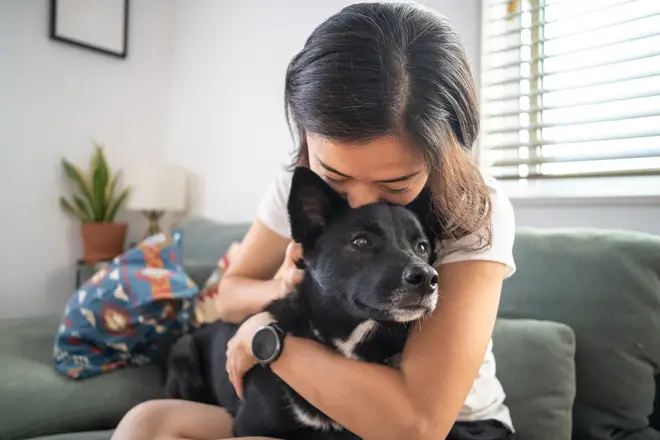Your dog can tell when you’re lying, according to a new study
8 June 2021, 12:16

Apparently, dogs can sense if you're being dishonest to them.
We all know our dogs are smart, but it turns out they could be a lot cleverer than we ever imagined.
In fact, new research has shown that our furry friends can actually tell if we are lying.
The study, carried out at Kyoto University in Japan, involved scientists filling some containers with hidden food and leaving some empty.
- You can now buy your dog a paddling pool that has sprinklers
- Dog owners who spent £300 on vet bills find out lurcher with 'limp' was copying owner
- Dogs can sniff out Covid-19 in seconds with 94 per cent accuracy, new research shows

When they pointed to the tub full of food, the dog involved immediately ran to it.
They then repeated the experiment with an empty container and the dog ran to it but found there was no food.
The third time the scientists tried to encourage the dog to go to the container, it refused to go, seemingly knowing the person wasn’t reliable based off their previous experience.
This was then repeated with 34 different dogs and the same pattern, meaning dogs could be able to tell when we're being dishonest based on previous experience.

Puppy teaches baby how to crawl
Akiko Takaoka - who led the study - said: "Dogs have more sophisticated social intelligence than we thought.
“This social intelligence evolved selectively in their long life history with humans.”
The study also explained: "Dogs are known to consistently follow human pointing gestures.
“In this study, we asked whether dogs 'automatically' do this or whether they flexibly adjust their behaviour depending upon the reliability of the pointer, demonstrated in an immediately preceding event.”

The study concluded: "These results suggest that not only dogs are highly skilled at understanding human pointing gestures, but also they make inferences about the reliability of a human who presents cues and consequently modify their behaviour flexibly depending on the inference."
John Bradshaw of the University of Bristol - who wasn’t involved in the study himself - says the results highlight how dogs prefer events in their lives to be predictable.
He added that when gestures are inconsistent, dogs tend to become nervous and stressed.
Moral of the story? Don't lie to your pup!

































